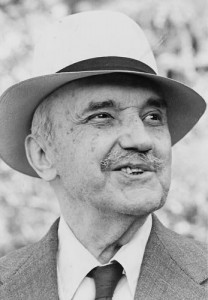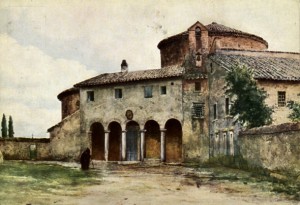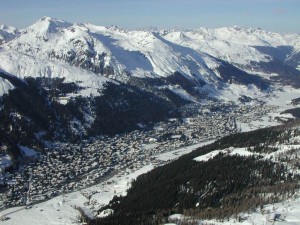 To Rosamond Thomas [Sturgis] Little
To Rosamond Thomas [Sturgis] Little
Via Santo Stefano Rotondo, 6
Rome. June 10, 1950
At last I put pen to paper to answer your various kind letters. I have been well enough to write, except for two or three days in midwinter when I was snatched from the abyss by penicillin; but instead of being busy with a new life like you, I have been driven by the fixed idea of getting my big final book, Dominations and Powers into shape. The last part, all but the last chapter, is now being typed by the tireless Miss Evelyn Tindall, secretary to the British Minister to the Holy See, who has copied all my books since, and including, The Last Puritan. She has white ringlets and youthful flesh-coloured stockings, and produces the most beautiful faultless pages to the eye; but there are little matters wrong here and there so that everything has to be reread as if it was printer’s copy.
This, however, I shall not have to do, as Scribner’s assistants are very good at standard proof-reading. It is only some philosophical terms that sometimes floor them. I am now doing this proof-reading on Part II, which Cory will read afterwards, and we hope to get these parts–the first is already in Scribner’s hands–to New York in the Autumn. This is an immense relief.
. . . . P.S. I liked the idea of “Atoms of Thought”; but the Execution has given me a shock. It reads like an anti-religious tract of the Rationalist Society: and Cardiff has the impudence to compare me to Thomas Paine, and not to Thomas Aquinas!
From The Letters of George Santayana: Book Eight, 1948-1952. Cambridge, MA: The MIT Press, 2008.
Location of manuscript: The Houghton Library, Harvard University, Cambridge MA


 To Andrew Joseph Onderdonk
To Andrew Joseph Onderdonk To Boylston Adams Beal
To Boylston Adams Beal